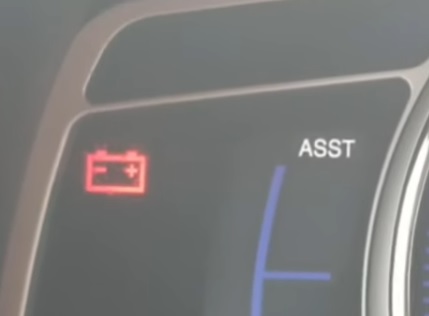
If you have a vehicle and the alternator is charging, but the battery light stays on, there can be several causes and fixes.
A bad charging system often is caused by a failed alternator, but there are other components that can cause the issue.
Why Does the Battery Light Come On?
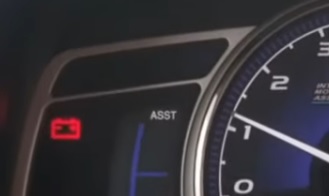
When a vehicle’s computer sees the DC voltage output drop below the alternator’s rated output, the battery light will come on.
Every vehicle has a different low voltage which usually falls between 13.50 Volts DC to 14.50 Volts DC.
When an alternator is outputting at least 13.50 volts DC it is usually working correctly.
The alternator specifications can be looked up to get the exact rated output.
Causes and Fixes Battery Light On But Alternator is Charging
- Alternator Low Voltage Output or Intermittent Issue
- Bad Voltage Regulator
- Bad Battery Sensor
- Bad Battery
- Bad Wiring Connections
- High Amp Load
- Warning Light Malfunction or Wiring to the Indicator Light
- Blown Fuse
- Bad PCM/ECM
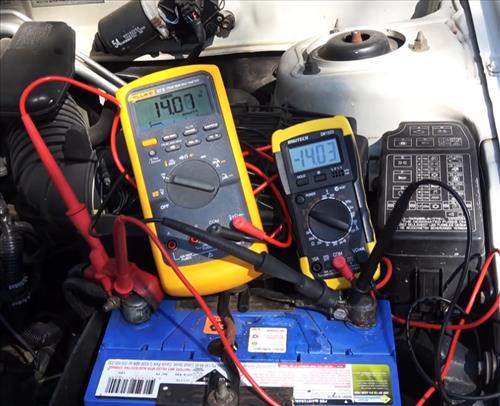
While most alternators are either working or not working sometimes there can be intermittent issues.
For example, if there is a bad connection inside the unit, it may work well most of the time but fail intermittently.
The computer will see this and turn on the battery light, but when the unit is tested, it tests good.
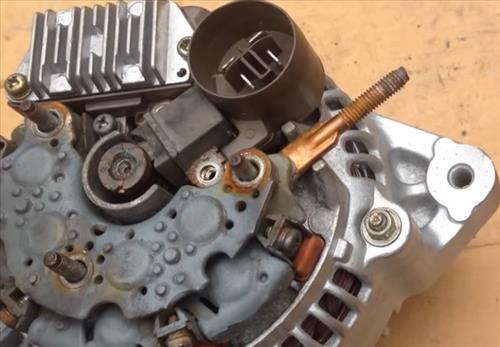
The voltage regulator may have failed and is not keeping the voltage within the rated range the computer is looking for.
For example, a failing voltage regulator may be keeping the voltage at 13.50 volts when the computer wants it at 14.00 volts.
Each vehicle is different on the rated output the computer wants to see before it turns on the battery light and gives an error code.
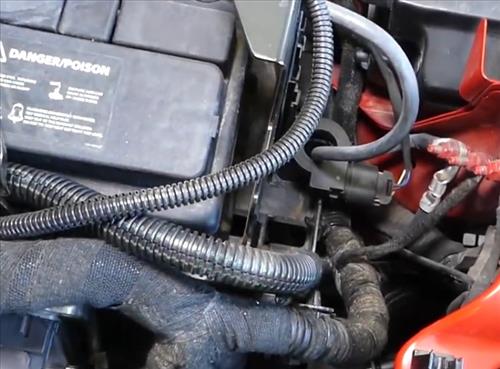
Many modern vehicles have a battery sensor located near the battery.
Not all cars and trucks have a battery sensor, but many newer vehicles do.
When a battery sensor fails, it can cause many issues, including reporting to the computer that the alternator is not charging.
This is a common issue, and often when an alternator is charging and there is an issue, the battery sensor has failed.
A bad or failing battery can cause issues.
If a cell is starting to fail, the battery may work good but intermittently fail, causing a charging problem.
Bad connections can cause issues not only at the terminals but at the alternator as well.
Check the terminals and be sure they are not loose and there is no corrosion.
Also, check the alternator wires and that there are no issues.
If there is a high Amp load inside the vehicle this can sometimes cause issues.
For example, if there is many added electronics inside a car or truck, they may be pulling more than the charging system can handle.
The computer may see this high amp load and give an error.
The battery warning light may be malfunctioning and there may be no issue with the charging system.
This usually points to a wiring issue inside the dashboard.
Usually, when the alternator is charging, there is no blown fuse, but there may be a related component failure causing the problem.
For example, a fuse for the dashboard lights may have blown and the light automatically comes on.
The computer may be failing, and the circuit that is monitoring the charging system has gone bad.
Hello, I have. 2016 Nissan Qashqia. The battery light does not go off. What do I do if it needs a ECM part?